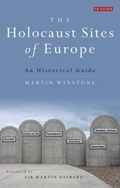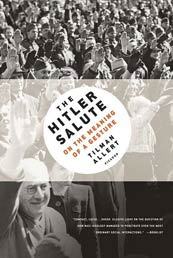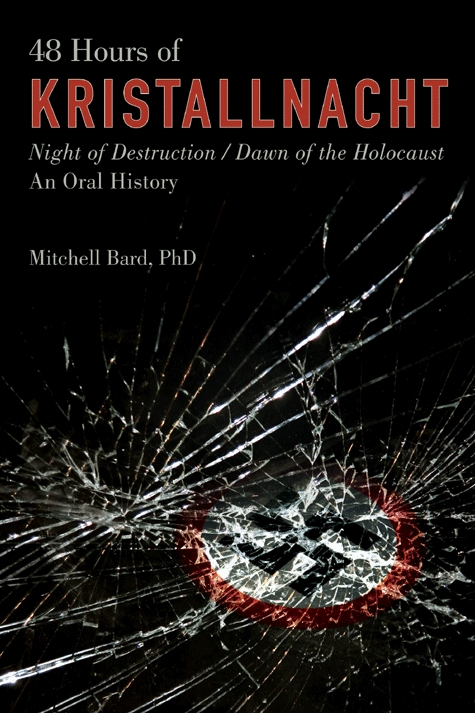The Kosher Bookworm: Remembering Kristallnacht
The Kosher Bookworm
By Alan Jay Gerber
Issue of October 22/ 14 Cheshvan 5771 Once more we come to that time of year when our minds and hearts are drawn back to an era when evil came forth and almost eradicated all that we hold dear. The events of Kristallnacht, the first week in November of 1938, have come to serve as an annual time of commemoration for us, not only of those terrible events but also the entire gamut of experiences under Nazi and Communist tyrannies. Thus, I will present several works for your edification that deal with these events.I first came to know of Dr. Mitchell Bard through an essay that he wrote about the Obama administration’s demands that Israel halt the building of settlements in 2009. Given the news of today, that essay could have easily been written this month. Bard’s detailed analysis of the situation on the ground would and should make for good reading for every federal official who has our best interests at heart.
Dr. Bard applies his same skills in his book titled, “48 Hours of Kristallnacht” [Lyons Press, 2008], a compendium of anecdotes and eyewitness testimony to the Kristallnacht persecutions. Organized into nine chapters, each chapter is focused on a different aspect of the state-sponsored terrorism that helped launch the Holocaust.
In addition to the heartfelt testimonies, five appendixes are included that go into great detail delineating Heinrich Muller’s orders to the Gestapo, the text of Reinhard Heydrich’s instructions, and a partial list of synagogues that were destroyed during that night.
This little book is a very comprehensive and riveting account of events that serve as a warning of how barbaric a civilized government can become.
Each story reads as if it was lifted from the Eichah [Lamentations] that we read annually on Tisha B’av night. In fact, it is my opinion that this book should be adapted to any worthy Kristallnacht commemoration. Its content appeals to the heart and soul. All will be able to identify with those who experienced the horrific events of those infamous nights and days.
A travel guide and a history book
Truth be told, I have no intention of ever visiting the sites of the Holocaust in Europe. Even after close to 30 years of teaching Holocaust history and literature, I refuse to tread the lands so drenched in the blood of my people. Yet, despite this feeling, I was impressed recently with the issuance of a new book titled, “The Holocaust Sites of Europe: An Historical Guide” [I.B. Tauris and Co., 2010] by Martin Winstone, with a foreword by Sir Martin Gilbert.
Indeed, it was Sir Martin’s words that pressed me into reading this guide, not as a source for a future trip to the sites of the Holocaust, but rather as a rich source of historical information of all the major, and not-so-major, sites of the Holocaust.
This book is both a history and a travel guide that combines detailed historical accounts and practical travel information that even the non-traveler would find interesting, including pictures, maps and relevant historical data to go with them.
The book covers 19 countries from all over Europe. In addition, the author provides a five-page list of books and literature for further reading and research. For anyone who wishes to learn more about the on-ground experiences of the Holocaust, this is the book to get.
A salute to insanity
One last book, the smallest of the lot, I wish to bring to your attention, “The Hitler Salute” [Henry Holt and Co., 2008], written by Tillman Allert, a professor at the University of Frankfort. This is his first book to be translated into English and it is a fascinating analysis of the phenomenon of the Hitler salute that enveloped German society for all the years of Nazi rule. Believe it or not, the gesture has a history, a purpose and a crazy logic all to its own.
Within this book’s slender 100 pages are some precious lessons to apply in our day: be on guard against political slogans and false hype. The evil uses of propaganda, especially in this era of high tech communications, are not to be underestimated. Just look at the drone-like military marches and music employed by China and North Korea, as well as the clown-like presidents of Venezuela and Iran. We can only shudder at the thought of the possibility of such governance ever coming to these shores.
The lessons of Kristallnacht will always live on in our memory. If we are chastened by the fact that the benefits of liberty can be lost by neglect in a single generation, we can prevent that generation from being our own.

 55.0°,
Overcast
55.0°,
Overcast 









